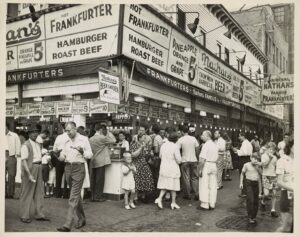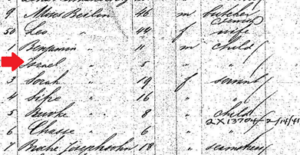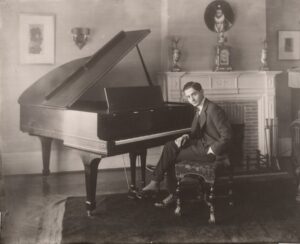Hello Once Again Torch Readers,
As everyone settles into their autumn routines, we at the American Family Immigration History Center (AFIHC) thought it would be fun to take a look back and share the story of some of our country’s beloved snacks and musical traditions.
Michael Barbalat, one of the volunteers at AFIHC, has a love of history and storytelling. He has uncovered the immigrant stories behind culinary classics such as Nathan’s Famous hot dogs and Vlasic Pickles that we take for granted, and written them out for our blog readers to enjoy!
You may already be feeling a bit nostalgic for summer, with its barbeques, boardwalks, and fireworks, all evoking feelings that are at the heart of the American experience. Without the ingenuity of immigrants, our seasons wouldn’t be quite the same – whether it’s the food we enjoy thanks to the culinary traditions brought to our shores by immigrants, or the patriotic songs that we hear to celebrate major holidays.
Many thanks to Michael for inspiring us all to think about the stories behind the American experience!
Sincerely,

Stephen Lean (he/him)
Director, American Family Immigration History Center
The Statue of Liberty-Ellis Island Foundation




